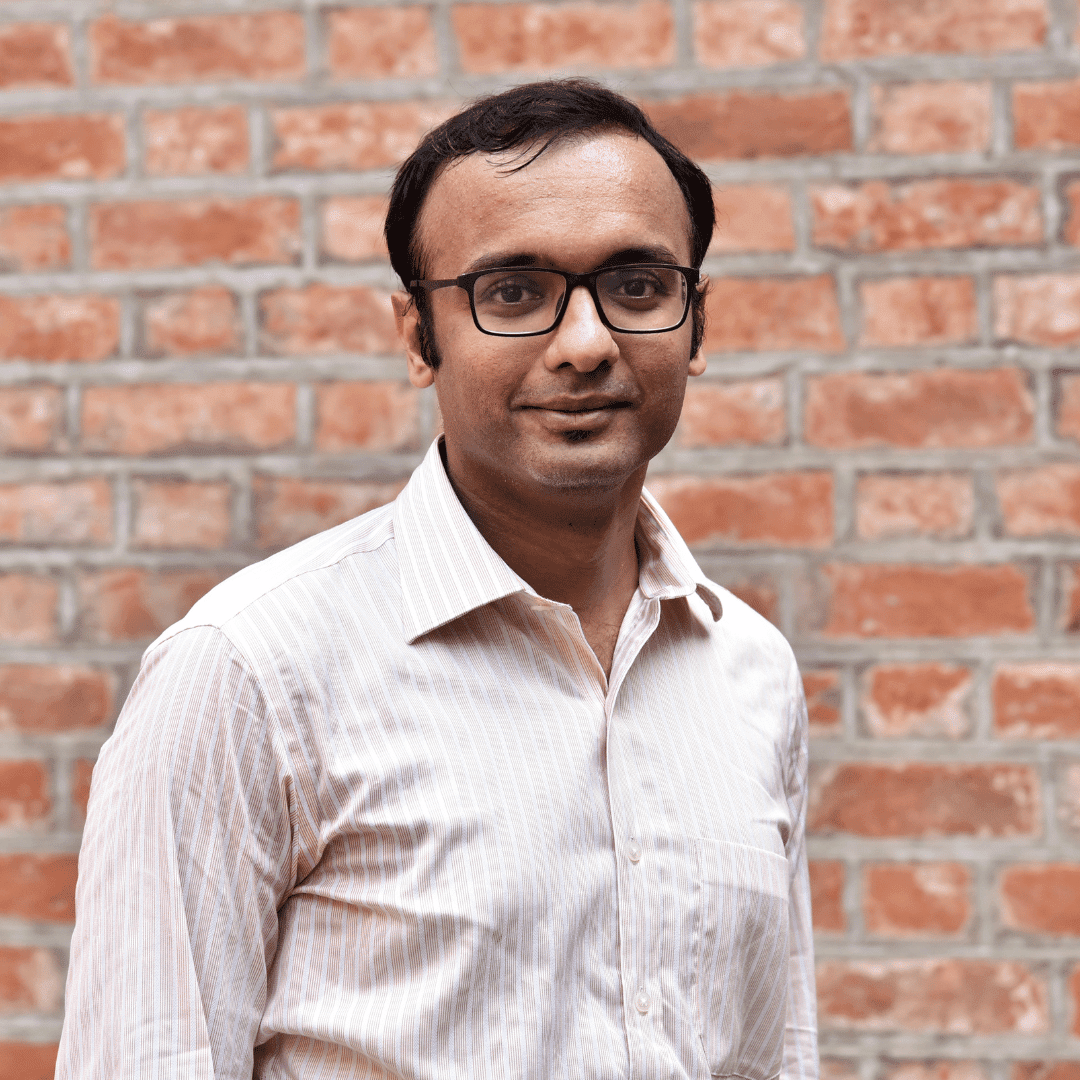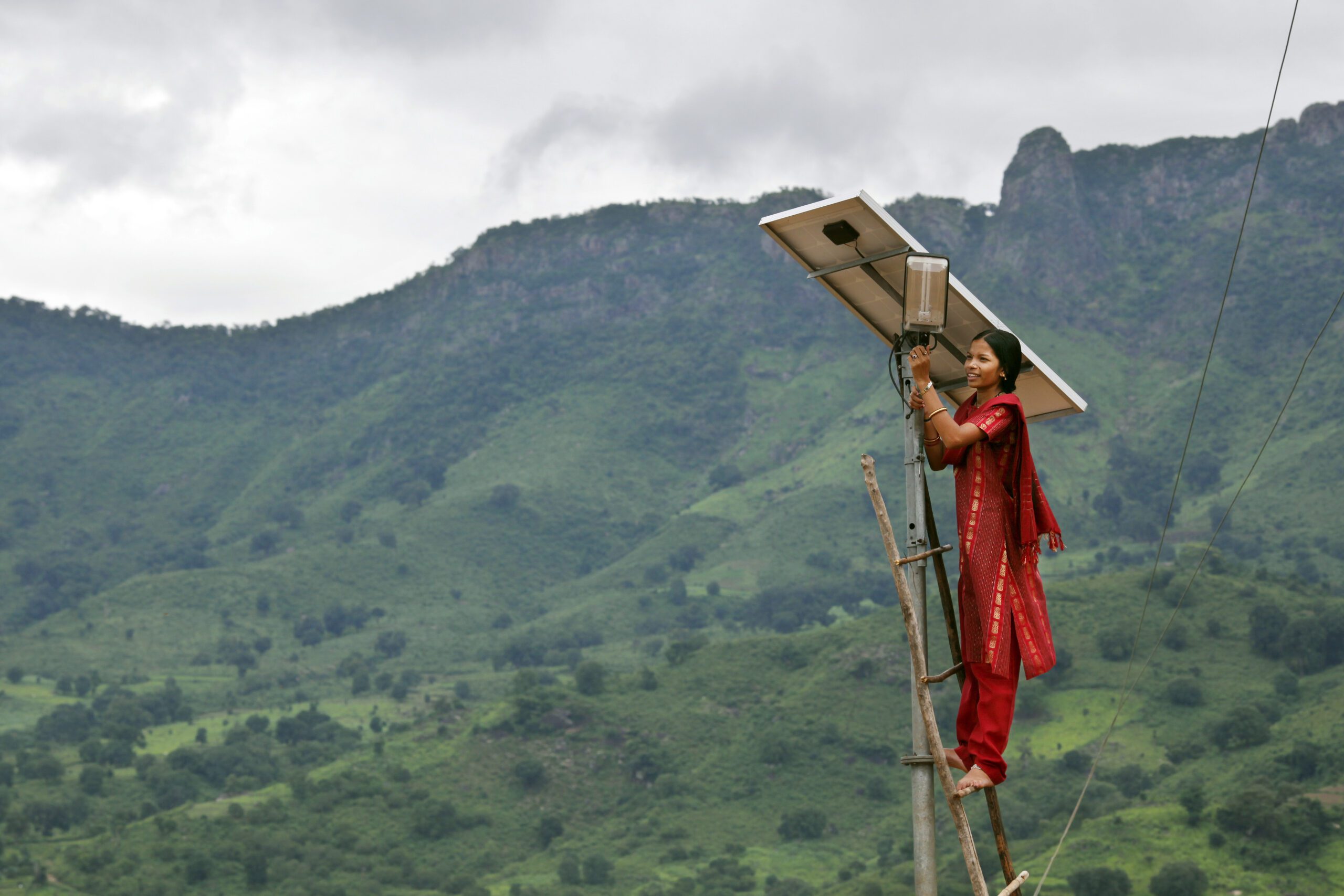Arpit Shah, an interdisciplinary researcher who works at the intersection of urban studies and the environment, joined the Mittal Institute this fall as the Raghunathan Fellow. Arpit, an Assistant Professor in Public Policy at the Indian Institute of Management Bangalore, explores the justice implications of urbanization and climate change on communities in South Asia. He shared more on his scholarship and research plans while here in Cambridge.
Mittal Institute: Welcome, Arpit! Can you talk about your first impressions of Harvard – what has been the most pleasant aspect of your time thus far?
Arpit Shah: It’s been great. Everyone at the Mittal Institute has been incredibly welcoming and have made us feel right at home. The onboarding process was streamlined and effortless (I think Thomas Elliott, Mittal Institute Programs and Administrative Coordinator, deserves a shoutout here!). It is difficult to pinpoint one thing that I like the most about Harvard so far. The campus is amazing (I keep discovering something new everyday); the libraries are awe-inspiring; I have the freedom and independence to create my research agenda; and there is a whole host of interesting seminars and talks practically daily that one can learn so much from.

Arpit Shah
Mittal Institute: What led you to apply for this fellowship?
Arpit Shah: I had two major reasons for applying for this fellowship. Firstly, Harvard has a lot of researchers working in areas complementary to mine, and this can lead to a number of interesting research collaborations in the long-term. My work intersects with the research being done at the Graduate School of Design, the Harvard Kennedy School, and the Harvard Chan School of Public Health. I am looking forward to interacting with the research community in these areas. Secondly, the fellowship provides the time and space to pursue my research and help build towards a longer-term research agenda of exploring climate justice issues in India.
Mittal Institute: Can you tell us how you became interested in studying climate change’s impacts? What are the specific themes that you’re researching?
Arpit Shah: As a Strategy Consultant with the Monitor Group (in my pre-Ph.D. life), I did a lot of work on social-sector projects that involved working with marginalized communities in urban slums and in the rural parts of some of the economically poorer regions of India. That led me to witness firsthand the impacts of marginalization and poverty on the lives of people and how climate shocks can compound these effects. I got interested in the issue of climate change as a result. As I learned more about the unequal impacts of climate change across communities, I realized how privileged groups that consume more resources are also better able to protect themselves. As an example, people with means can afford to install air-conditioners to tackle the extreme heat that is now a daily feature in the Indian summer. But this actually leads to greater problems for households that cannot afford air-conditioning. I have come to believe that any fair solution to the climate crisis must first grapple with its unequal impacts.
I have come to believe that any fair solution to the climate crisis must first grapple with its unequal impacts.
Mittal Institute: South Asia is one of the most vulnerable regions to climate change. How has your research grown or evolved as the climate crisis has worsened?
Arpit Shah: You are absolutely correct – South Asia is definitely one of the most vulnerable regions in the world, be it the threat of sea-level rise, extreme heat, or extreme weather events such as droughts, floods, and cyclones. In many cases, the vulnerability is compounded by weak state capacity and the poor socioeconomic conditions that many households exist in. While climate threats were seen as an abstract future threat until a few years ago, we are now starting to experience climate impacts in our daily lives. Every year since 2022 has been a record-breaking year for heat waves in the Indian summer. My work has started to be shaped by what is happening around us. For instance, a recent paper that I worked on (and is now forthcoming in Demography) examined how an individual’s social identity modulates occupational exposure to outdoor heat in the summer in India. This is a project we’re now building on, to further document such inequalities and thereby influence policymaking.

Huge pylons run across the hills in parts of India, which supply power to the big cities – but rural areas like this, near near the village of Tinginaput, are not connected to the main grid and sometimes use clean energy sources to connect. Arpit’s research documents inequalities in climate change, with a particular focus on environmental justice in New Delhi | By Abbie Trayler-Smith / Panos Pictures / Department for International Development.
Mittal Institute: What is the specific research project you will explore during your Raghunathan Fellowship?
Arpit Shah: I am working on a project that aims to map and examine environmental justice in Delhi at the neighborhood level by pairing administrative data with remotely sensed information. Researchers have argued that urbanization can potentially dilute existing inequalities based on caste, religion, and income in India. In this project, we aim to combine Census Enumeration Block (CEB) data for Delhi with satellite data on on metrics such as land use, air pollution, and temperature. We also hope to link environmental exposure with health outcomes in the city. Our work will provide the first high-resolution spatial characterisation of residential segregation, and the provisioning of environmental goods (green spaces) and bads (air pollution, high temperature) for Delhi.
Mittal Institute: What is something you’re most looking forward to during your time at Harvard?
Arpit Shah: I am really looking forward to engaging with the research community at Harvard. My mentor, Professor Ann Forsyth at the Graduate School of Design, has been very welcoming and helpful in sharing their thoughts on my work and how best to utilize my time here. The seminars I’ve been attending (in my short stint so far!) have been excellent, and I’m hoping that interactions with people here open up new avenues of research and collaboration.
☆ The views represented herein are those of the interview subject and do not necessarily reflect the views of the Mittal Institute, its staff, or its steering committee.
